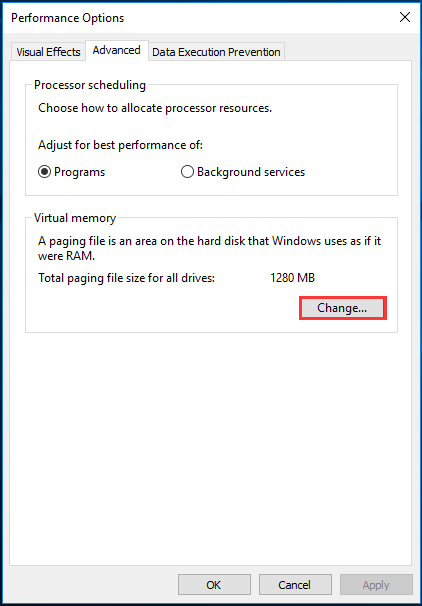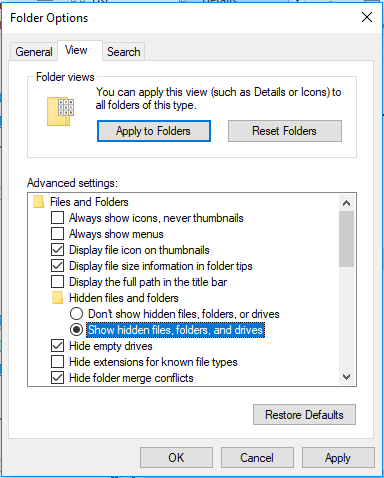What if you receive the Windows created a temporary paging file error when starting your PC or changing some settings? Don’t worry and it is easy to fix this issue as long as you follow these solutions offered by MiniTool in this post.
Windows Create a Temporary Paging File Windows 10
When booting up your computer or trying to change some settings every time, you may get a paging file error that is very annoying. The detailed error message is:
“Windows created a temporary paging file on your computer because of a problem that occurred with your paging file configuration when you started your computer. The total paging file size for all disk drivers may be somewhat larger than the size you specified”.
The error is related to pagefile.sys. In most cases, the system file is corrupted. As a result, Windows thinks it has to create a new pagefile.sys file every time you start the machine.
According to users, this error often happens on Windows 7 but it may occur in Windows 10. Luckily, you can fix the issue and the methods are introduced below.
How to Fix Windows Created a Temporary Paging File
Disable AFS
AFS, the Audio File System driver, allows Windows to read Audio CD’s and show the tracks as individual files. However, due to the existence of a bug, Windows may incorrectly think the audio CD is installed as a fixed hard drive since it cannot read the disk and create the pagefile.sys file. As a result, Windows has created a temporary paging file.
To fix this issue, disabling AFS is helpful. If you haven’t installed the driver, this way is not available.
Step 1: Run Command Prompt (CMD) as administrator.
Step 2: Type sc config afs start= disabled and press Enter.
Step 3: Reboot your PC and see if the Windows created a temporary paging file error doesn’t appear.
If you receive the information “The specified service does not exist as an installed device”, this means you don’t install an AFS driver. In this case, try other methods.
Run System File Checker
The pagefile.sys error may be caused by messed system files. To fix this issue, you can try System File Checker to detect and fix errors in system files.
Step 1: Also, run Command Prompt with admin rights.
Step 2: Type sfc /scannow and press Enter. Then, wait a few minutes until the scan finishes.

Step 3: Restart the PC to see if you still receive the paging file error. If yes, continue with the steps below.
Step 4: In Command Prompt window, type Dism /Online /Cleanup-Image /RestoreHealth and press Enter. Wait until the scan is completed. Make sure the Internet connection is stable.
Step 5: Then, run another SFC scan, regardless of the DSIM scan result.
Step 6: Restart the PC after the third scan completes. If you still get the Windows created a temporary paging file error, try another way.
Force Windows to Make a Copy of Pagefile.sys
If the above 2 ways fail to fix your issue, you can choose to delete the pagefile.sys file and let Windows create a new one from scratch. This way is safe and won’t impact your system. Inversely, it can free up some free space to speed up the system.
Step 1: Open the Run window, type systempropertiesadvanced, and click OK.
Step 2: Under the Advanced tab, click Settings from the Performance section.
Step 3: Go to Advanced > Change.

Step 4: Uncheck Automatically manage paging file size for all drivers, click Custom size, and enter 0 for Initial size and Maximum size.
Step 5: Confirm the change and restart your computer.
Step 6: Go to C drive in Windows Explorer and locate pagefile.sys. By default, it is hidden and you need to unhide it by going to the Folders Options tab and checking Show hidden files, folders, and drivers. Then, delete the system file.

Step 7: Repeat step 1-3 to go to the Virtual Memory window again and check Automatically manage paging file size for all drivers.
Step 8: Reboot the PC and Windows will create a new pagefile.sys. Now, the issue should be removed.
Bottom Line
Windows created a temporary paging file? It is easy to fix this issue if you follow these solutions mentioned above. We hope this post is helpful to you. Just have a try.